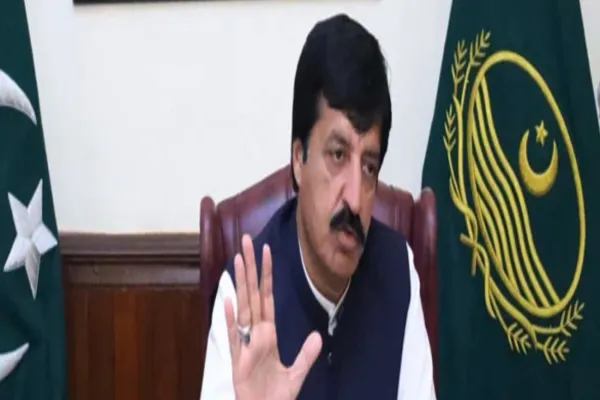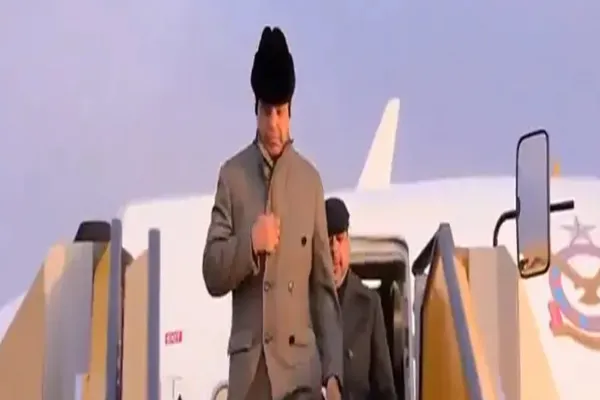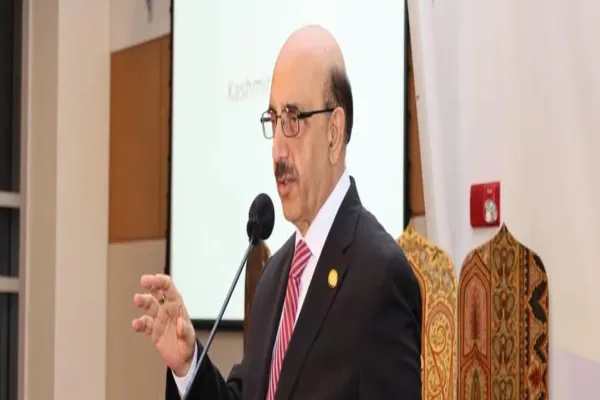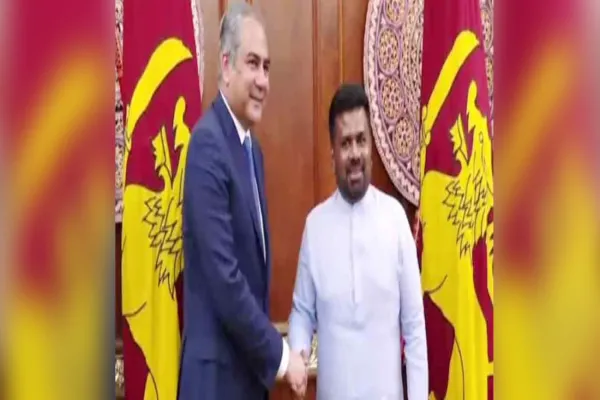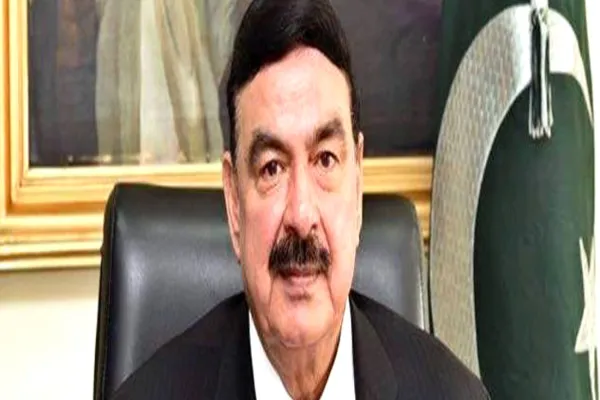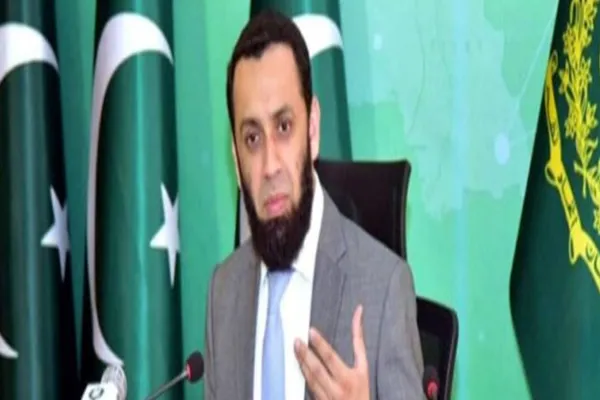i NEWS PAKISTAN
The RASTA Conference 2024, hosted by the Pakistan Institute of Development Economics (PIDE), wrapped up with a series of impactful sessions that delved into critical issues concerning food, agriculture, and fiscal management in Pakistan. The conference provided a platform for experts and policymakers to engage in meaningful discussions on the challenges and opportunities within these vital sectors. The day commenced with a session on "Food & Agriculture," where Khair Muhammad Kakar of UET Khuzdar presented an analysis on the effects of government policies on olive production. Kakar’s research indicated that while government initiatives have fostered olive cultivation, challenges such as limited technical knowledge, inadequate access to quality plant materials, and insufficient processing facilities persist. He emphasized for sustained and targeted policy interventions to address these issues, particularly in potential-rich regions like Balochistan.
Saranjam Muhammad Baig from Karakoram International University, Gilgit, provided an examination of the political economy surrounding wheat subsidies and food security in Gilgit-Baltistan. His study revealed ongoing food insecurity despite substantial wheat subsidies, affecting over 50% of the population. Baig identified inefficiencies in subsidy distribution, with wealthier households benefiting disproportionately. He recommended a targeted subsidy approach, enhanced transparency, and support for local agriculture to improve food security in the region. Irfan Ahmad Baig from MNS University of Agriculture, Multan, addressed the complexities of taxing rental income in agriculture. His presentation underscored the issue of skewed land distribution, with a small fraction of large landowners controlling a significant portion of land. Baig proposed comprehensive agrarian tax reform, including the taxation of absentee landlords, as a means to generate revenue for public services and infrastructure development.
The RASTA Showcase-II session followed, featuring Dr. Durre Nayab, Director of Research at PIDE Islamabad. Dr. Nayab presented findings from the Pakistan Panel Household Survey (PPHS) 2024 Round, marking a significant advancement in socio-economic research. The 2024 survey, supported by the World Bank since its inception in 2001, introduces digital data collection methods and expands urban representation with coverage of 14 additional districts. This iteration of the survey includes new modules on CNIC/B-form registrations, eating-out expenditures, and subjective welfare, making it one of the most extensive panel surveys conducted in Pakistan. With a robust sample of over 8,500 households, the PPHS 2024 provides invaluable data for understanding socio-economic transitions, informing policy on social inequality, employment trends, and household security.
The afternoon session on "Fiscal Management" featured critical assessments of governance structures and public sector management. Ayezza Sattar from Islamabad presented a case study on the Ministry’s governance framework, identifying significant flaws including a lack of cohesion among its various wings, political interference, and issues related to intellectual integrity. Sattar advocated for amendments to the Rules of Business and a redistribution of work to enhance governance outcomes. Asadullah Khan from Karakoram International University, Gilgit, focused on public sector project governance in Gilgit-Baltistan, particularly in the power sector. His analysis revealed systemic issues such as poor stakeholder management, ineffective governance mechanisms, and bureaucratic delays. Khan recommended the adoption of e-procurement, improved planning, and robust risk management strategies to enhance project performance.
Sobia Khurram from the University of the Punjab, Lahore, explored barriers to the adoption of tax e-filing in Pakistan. Her research pinpointed the complexity of the current system, lack of awareness, and general mistrust in tax authorities as primary challenges. Khurram proposed simplifications to the e-filing interface, enhanced taxpayer education through improved tutorials, and increased awareness of available support services. The session concluded with Muhammad Nadeem Sarwar from FAST National University, Islamabad, presenting an analysis of tax expenditures in Pakistan. Sarwar’s study highlighted the growing burden of tax expenditures, especially in customs and sales tax, and recommended eliminating unnecessary exemptions and enhancing transparency in the tax system to improve revenue collection. Nadeem ul Haque, Chairman of RAC, RASTA, and Vice-Chancellor of PIDE, delivered the closing remarks, underscoring the significance of research-driven policy-making and outlining the next steps for RASTA’s initiatives.
He expressed gratitude to all participants for their contributions, marking the conference’s success. The RASTA Conference 2024 remains a pivotal platform for addressing Pakistan’s pressing challenges, fostering informed dialogue, and shaping future policy-making in the country. RASTA Conference 2024 Concludes with Key Insights on Food, Agriculture, and Fiscal Management Islamabad ( ) September 2024 The RASTA Conference 2024, hosted by the Pakistan Institute of Development Economics (PIDE), wrapped up today with a series of impactful sessions that delved into critical issues concerning food, agriculture, and fiscal management in Pakistan. The conference provided a platform for experts and policymakers to engage in meaningful discussions on the challenges and opportunities within these vital sectors. The day commenced with a session on "Food & Agriculture," where Khair Muhammad Kakar of UET Khuzdar presented an analysis on the effects of government policies on olive production.
Kakar’s research indicated that while government initiatives have fostered olive cultivation, challenges such as limited technical knowledge, inadequate access to quality plant materials, and insufficient processing facilities persist. He emphasized for sustained and targeted policy interventions to address these issues, particularly in potential-rich regions like Balochistan. Saranjam Muhammad Baig from Karakoram International University, Gilgit, provided an examination of the political economy surrounding wheat subsidies and food security in Gilgit-Baltistan. His study revealed ongoing food insecurity despite substantial wheat subsidies, affecting over 50% of the population. Baig identified inefficiencies in subsidy distribution, with wealthier households benefiting disproportionately. He recommended a targeted subsidy approach, enhanced transparency, and support for local agriculture to improve food security in the region. Irfan Ahmad Baig from MNS University of Agriculture, Multan, addressed the complexities of taxing rental income in agriculture.
His presentation underscored the issue of skewed land distribution, with a small fraction of large landowners controlling a significant portion of land. Baig proposed comprehensive agrarian tax reform, including the taxation of absentee landlords, as a means to generate revenue for public services and infrastructure development. The RASTA Showcase-II session followed, featuring Dr. Durre Nayab, Director of Research at PIDE Islamabad. Dr. Nayab presented findings from the Pakistan Panel Household Survey (PPHS) 2024 Round, marking a significant advancement in socio-economic research. The 2024 survey, supported by the World Bank since its inception in 2001, introduces digital data collection methods and expands urban representation with coverage of 14 additional districts. This iteration of the survey includes new modules on CNIC/B-form registrations, eating-out expenditures, and subjective welfare, making it one of the most extensive panel surveys conducted in Pakistan. With a robust sample of over 8,500 households, the PPHS 2024 provides invaluable data for understanding socio-economic transitions, informing policy on social inequality, employment trends, and household security.
The afternoon session on "Fiscal Management" featured critical assessments of governance structures and public sector management. Ayezza Sattar from Islamabad presented a case study on the Ministry’s governance framework, identifying significant flaws including a lack of cohesion among its various wings, political interference, and issues related to intellectual integrity. Sattar advocated for amendments to the Rules of Business and a redistribution of work to enhance governance outcomes. Asadullah Khan from Karakoram International University, Gilgit, focused on public sector project governance in Gilgit-Baltistan, particularly in the power sector. His analysis revealed systemic issues such as poor stakeholder management, ineffective governance mechanisms, and bureaucratic delays. Khan recommended the adoption of e-procurement, improved planning, and robust risk management strategies to enhance project performance. Sobia Khurram from the University of the Punjab, Lahore, explored barriers to the adoption of tax e-filing in Pakistan. Her research pinpointed the complexity of the current system, lack of awareness, and general mistrust in tax authorities as primary challenges.
Khurram proposed simplifications to the e-filing interface, enhanced taxpayer education through improved tutorials, and increased awareness of available support services. The session concluded with Muhammad Nadeem Sarwar from FAST National University, Islamabad, presenting an analysis of tax expenditures in Pakistan. Sarwar’s study highlighted the growing burden of tax expenditures, especially in customs and sales tax, and recommended eliminating unnecessary exemptions and enhancing transparency in the tax system to improve revenue collection. Nadeem ul Haque, Chairman of RAC, RASTA, and Vice-Chancellor of PIDE, delivered the closing remarks, underscoring the significance of research-driven policy-making and outlining the next steps for RASTA’s initiatives. He expressed gratitude to all participants for their contributions, marking the conference’s success. The RASTA Conference 2024 remains a pivotal platform for addressing Pakistan’s pressing challenges, fostering informed dialogue, and shaping future policy-making in the country.
Credit: Independent News Pakistan




